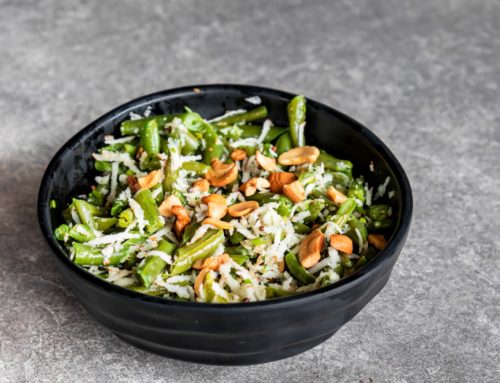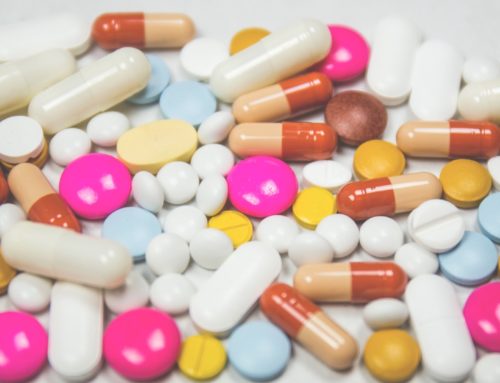The idea with lists such as these isn’t to achieve perfection, nor to even strive for it. Instead, view this article and the science mentioned below as inspiration to incorporate more of these foods into your day-to-day. If you can knock out 5 foods on one day, and a different 5 on the next, then you’re already on your way to success.
“Every time you eat or drink, you are either feeding disease or fighting it” -Heather Morgan.
The 15 Foods You Should Be Eating Every Day And Why:
- Red/Dark Berries (blueberries, blackberries, acai, goji, cherries, strawberries, raspberries)
In what is currently the largest conclusive analysis of risk factors for death and disease in all of history, 500 researchers in 50 different countries developed the 2010 Global Burden of Disease Study. They found the leading cause of both death, disability, and disease within the United States was diet.
Further to this, researchers were able to pin-point, that not eating enough fruit — and more specifically, not eating enough berries — was one of the factors with the greatest success in predicting disease (1).
Why makes berries so special? Well simply put — it’s their colour! Being the category of fruit with the highest levels of antioxidant properties, berries are second only to spices when it comes to packing a nutritional punch. In fact, a study by the American Cancer Society of nearly 100,000 men and women found that those who ate the most berries appeared significantly less likely to die of cardiovascular disease.
2. Beans (soybeans /edamame, black beans, kidney beans, lentils, split peas, chickpeas)
Research on the diet of individuals from populations all over the globe has provided significant evidence for beans (otherwise referred to as legumes) as being one of the single “most important predictors of survival in older people” (2).
In fact, it was found that — regardless of their type — legume intake was the only food factor that was directly associated with a longer lifespan, with an 8% reduction in risk of death for every 20 grams (approximately 2 tablespoons worth) of beans consumed daily.
Soybeans, and soy foods in general, have also been linked to the lowering of breast and prostate cancer risks due to their high levels of a compound known as a phytoestrogen. Phytoestrogen works within the body by blocking the receptor’s access to true estrogen, and thus, mitigating the potential consequences of other lifestyle factors such as weight gain, dairy (high estrogen) consumption, and hormonal fluctuations (3).
3. Nuts (almonds, walnuts, pecans, pistachios, Brazil nuts, cashews, hazelnuts, macadamia nuts)
Eating a mere handful of nuts every day is not only associated with a major reduced risk of chronic diseases, such as heart disease and diabetes, but nuts have also been shown to lower levels of oxidation and blood sugar within the body, as well as LDL (bad) cholesterol, thereby improving arterial function (4).
Despite their naturally high-fat content, studies have shown that daily consumption of nuts is not actually linked to any form of weight gain, with results indicating an association between nut consumption, a slimmer waistline, and a lower risk of obesity (5).
4. Flaxseed (milled flaxseed)
An incredible study conducted in 2013 found that ground flaxseed provided one of the most strong anti-hypertensive effects to ever be achieved by a single food item. Results found that only a few tablespoons of the stuff (added to a smoothie, or incorporated into baked goods, perhaps) caused a beneficial lowering of blood pressure and risk of stroke 2–3 times stronger than the introduction of daily aerobic endurance exercises (6).
Although flax probably shouldn’t replace your exercise regimen entirely, the nutritional punch that is packed by this wonderful seed is certainly worth the addition to your daily meal planning.
5. Other Seeds (chia seeds, hemp seeds, pumpkin seeds, sesame seeds, fennel seeds)
Seeds are excellent sources of fibre and omega-3 fats and are small enough to add to most dishes without drawing a significant amount of attention themselves.
Chia seeds, in particular, were found to moderate blood sugar levels when consumed with, or directly after, a meal, as well as reducing the levels of inflammatory chemicals in the blood (7). Overall, an excellent addition to your daily eats.
6. Dates
Funnily enough, dates are one of the highest sugar foods on the planet being comprised of an incredible 80% sugar by weight. To put this into perspective, pure cake frosting is only 60%, maple syrup only 66%, and a handful of cotton-candy flavoured jelly beans come in around only 70%.
Despite the high sugar content, dates score surprisingly low on the glycemic index, meaning that they don’t have any dramatic effect on blood sugar levels, and have ever been found to improve triglyceride and antioxidant stress levels(8).
In addition to being a great source of energy, dates also contain high levels of dietary fibre and polyphenols, making the consumption of 3–10 dates per day a wonderful way to fight disease, support gut health in the form of prebiotics, and satisfy the needs of anyone with a sweet tooth (9).
7. Cruciferous Vegetables (broccoli, Brussel sprouts, horseradish, kale, cauliflower, cabbage, boy choy, arugula, radishes, turnip greens)
There’s an active ingredient present in cruciferous vegetables that makes this category of plant food a particularly nutritional powerhouse when it comes to fighting disease. This compound — something called sulforaphane — is responsible for protecting our brain, preserving our eyesight, protecting us against free radicals and hazardous products of our environment, as well as treating and preventing the growth of various cancers (10).
There’s one small catch though: unless you’re eating a daily helping of cruciferous vegetables raw, you’re going to be missing out on any significant levels of sulforaphane (and thus, its protective nutritional benefits). This is because the enzyme needed to create this super-compound is immediately destroyed when it comes into contact with heat, i.e. through the process of cooking.
What’s fascinating, however, is that if you were to chop your broccoli, or cauliflower, or turnip greens, and leave them to sit for roughly 45 minutes before tossing them in the oven or putting them into a pot to boil, the enzyme will have had enough time to work its sulforaphane magic, allowing the vegetables to incredibly retain the same nutritional value as if eaten raw in the first place. I know — completely crazy, right?!
8. Whole Grains (barley, brown rice, quinoa, oats, millet, popcorn, whole-wheat pasta, wild rice)
Daily servings of whole-grains are not only, arguably, one of the healthiest ways to consume your carbs for the day, but they also offer a range of benefits by aiding in the cultivation and maintenance of our healthy gut flora.
This occurs when fibre is broken down in the colon and begins a chain reaction, of sorts, releasing not only a wealth of beneficial substances into the bloodstream, but also bringing with it positive side-effects such as a lowered risk of Type 2 Diabetes, and inflammation (11).
9. Spices (turmeric, cumin, cinnamon, ginger, saffron, cloves, cardamom, chili powder, nutmeg, coriander)
An average person will accumulate evidence of DNA damage in about 7% of their total cells. This ‘damage’ is the result of tiny breaks that occur in the strands of our DNA — with a range of causal factors such as exposure to free-radicals.
Free radicals, FYI, are the molecules responsible for mutations within the body that can wreak havoc on lipids, proteins, and DNA, raising the likelihood of disease and cancer, in the process. Free radicals are largely unavoidable as they result from the natural process of cellular metabolism, but can be protected against through the consumption of anything with properties that include ‘anti-oxidant’ and ‘detoxifying.’
In addition, research has shown that including spices and herbs such as rosemary or ginger in our diet may cut the DNA damage by 25% — that’s right, it is possible to improve this damage through diet. Turmeric was found to work significantly better, and at an even smaller dose (just a pinch, daily). Similar spices will range somewhere in between 1.5 tablespoons, and a couple of pinches for maximum free-radical fighting (and anti-inflammatory) effectiveness (12).
10. Leafy Greens (spinach, collard greens, lettuce, other salad greens, swiss chard)
Studies have readily revealed that individuals that consume higher quantities of leafy greens not only perform better in cognitive tests, but also helpfully slow down the aging process within the brain (even if only by a year, or two) (13).
This is because, as we age, the level of blood flow to our brain drops significantly — likely the result of a decrease in the production of nitric oxide — that prevents our blood vessels from dilating as well. Hence, the daily consumption of nitrate-rich vegetables such as spinach and swiss chard may prove invaluable in the prevention of neurodegenerative diseases such as dementia and Alzheimers.
11. Fermented Foods (sauerkraut, tempeh, kombucha, plant-based kefir)
Fermented foods such as miso, kimchi, or sauerkraut contain naturally occurring probiotics that can help to support the microbiome of the gut.
Not only do probiotics maintain a good balance between the bacteria we want in our body, and the bacteria we don’t want, but they offer benefits in other areas, too. The fermentation of fruits and vegetables was found to increase their antioxidant capabilities as well as vitamin content, thereby aiding in the prevention of disease in more ways than one (14).
12. Sea Vegetables (seaweed, nori, dulse flakes)
A population study on women with and without breast cancer found that individuals consuming a single sheet of nori seaweed per day may cut their risk of developing or re-developing breast cancer by more than half (15).
It is thought that seaweed and sea vegetables, in general, may help to moderate the levels of estrogen processed in the metabolism, thereby lowering the risk of associated cancers and disease.
Not only do sea vegetables comprise a huge 30% of the total edible plants on earth, but they also possess phytonutrients that can’t be found in any other foods. Between their high levels of fibre, polyphenol defense compounds, polysaccharides, and carotenoids, sprinkling only a teaspoon of these super sea-foods on your dinner from time to time will help to fight disease from the inside out.
13. Water
Whether or not you consider water food is only slightly less of a concern of mine than whether or not you’re actually remembering to drink enough. We get it — we know water is important, but honestly, if this list were ranked according to what single item was linked to the most optimal health outcomes, water would easily be number 1.
Even after controlling for other factors such as lifestyle, diet, and exercise, research has shown that people who drink 5 or more glasses of water per day, had about a 50% lower risk of dying from heart disease, compared to those who drank 2 or less (16).
On top of being the sustaining force of all life on this earth, drinking enough water increases energy levels, improves skin, mental health, and processes involved in digestion, and dramatically decreases the risk of various health implications, including obesity.
14. Green Tea
Any and all tea consumption has actually been associated with a reduced risk of stroke, heart disease, and early death, with green tea often taking the lead for antioxidant content and immediate health benefits.
Further to lowering the levels of oxidative damage within our DNA, green tea leaves are also thought to have the power to interfere with each stage of cancer formation from the growth of the first mutated cell, to the development of a tumor, to the spread and progression of cancer within the body. Thus, including a cup of green tea in your daily morning routine is a quick and easy way to support your overall health, in both the long and short term (17).
15. Vitamin B12 Supplement
B12, also known as cobalamin, is a vitamin responsible for cell metabolism and its presence within the body is a vital one, as the consequences of not consuming enough B12 can be very serious.
Interestingly, a thousand or so years ago, humans could largely maintain their levels of vitamin B12 as a byproduct of eating vegetables from untreated soil. Unfortunately, due to modern-day sanitization processes, we no longer have sufficient levels of B12 in our farming soil.
B12 is often cited as being an issue only for vegetarians and vegans (as animals we eat for food are provided with B12 supplements before they are slaughtered), but more recent studies have found that plant-based eaters actually have lower rates of B12 deficiency than individuals on any other diet [18].
Article Sources:





